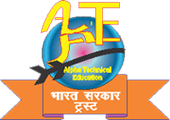Accounting and Bookkeeping. Business Economics. Business Finance. Business Management and Operations. Business Marketing. Business Support and Administrative Services. Business Statistics. Transportation Management. Customer Service Management. eCommerce. Logistics, Distribution, and Materials Management

Candidates are eligible to apply for the PhD program if they fulfil the following criteria:
- A Master’s Degree in any discipline, with at least 55 percent marks, AND a Bachelor’s degree/equivalent qualification with at least 50 percent marks (minimum three years of bachelor’s level education after the completion of higher secondary schooling).
or - A professional qualification (completed) such as CA (ICAI), ICWA, CS with a Bachelor's degree
or - A 4-year/8-semester Bachelor's degree with 6.5 CGPA or equivalent.
or - The Master's degree or equivalent qualification/Bachelor's degree or equivalent qualification required for IIM PhD eligibility should be: (a) from any of the Universities incorporated by an act of the central or state legislature in India or other educational institutions established by an act of Parliament or declared to be deemed as a University under section 3 of UGC Act, 1956; or (b) recognized by the Ministry of HRD, Government of India or (c) possess an equivalent qualification from an institution approved by AICTE. The Bachelor's degree or equivalent qualification obtained by the candidate must entail a minimum of three years of education after completing Higher Secondary schooling (10+2) or equivalent.
















